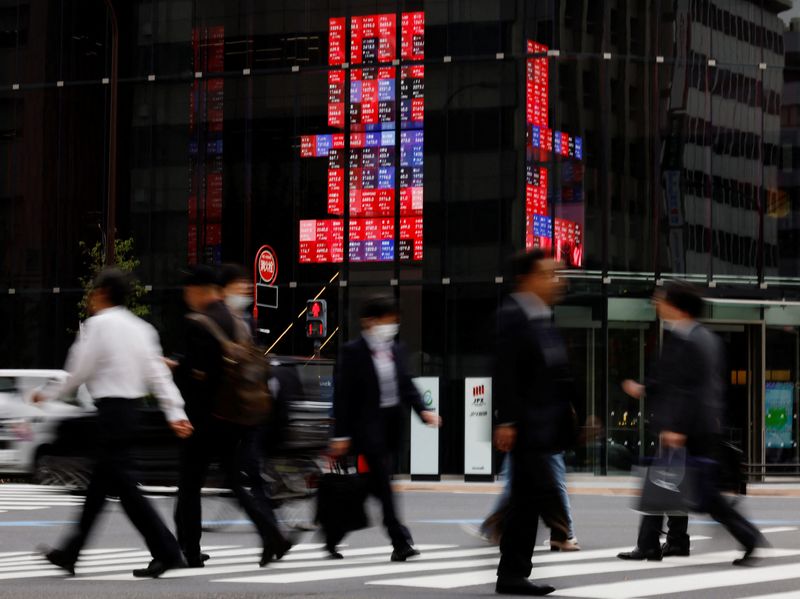By Makiko Yamazaki
TOKYO (Reuters) -Japanese corporate spending on plant and equipment rose at a faster pace in the second quarter, keeping alive expectations of a domestic-led recovery in economic growth and supporting the case for more interest rate increases over coming months.
The solid expenditure data, which will be used to calculate revised gross domestic product (GDP) figures due on Sept. 9, comes on top of a factory survey showing a milder contraction in manufacturing activity last month.
Capital spending accelerated by 7.4% year-on-year in the April-June quarter from the previous quarter's rise of 6.8%, Ministry of Finance data showed on Monday. It grew 1.2% on a seasonally adjusted quarterly basis.
Capital expenditure is one of the key gauges of domestic demand-led economic growth as policymakers are counting on business investment to be an engine for the world's No. 4 economy as exports struggle amid uncertainties around the U.S. and Chinese economies.
Preliminary data last month showed Japan's economy rebounded strongly in the second quarter from a slump at the start of the year, led by a solid rise in consumption.
Taken together, the positive economic impulse supports the case for the central bank to raise interest rates further in coming months despite the drag seen from the export-sector.
"Capital expenditure has been solid overall thanks to brisk appetite for digital-related investment, although spending by manufacturers was not that strong," Kazutaka Maeda, an economist at Meiji Yasuda Research Institute.
Monday's capex data also showed corporate sales rose 3.5% in the second quarter from a year earlier. Recurring profits increased 13.2% to 35.8 trillion yen ($244.79 billion), a quarterly record.
Business spending remained firm in recent years, driven by corporate appetite for investment to offset chronic labour crunch in the fast-ageing population.

Japanese firms have also gradually been warming to the idea of tapping their record cash pile after years of hoarding it. The companies' earned surplus grew 8.3% in the year ended in March to top 600 trillion yen for the first time.
($1 = 146.2500 yen)